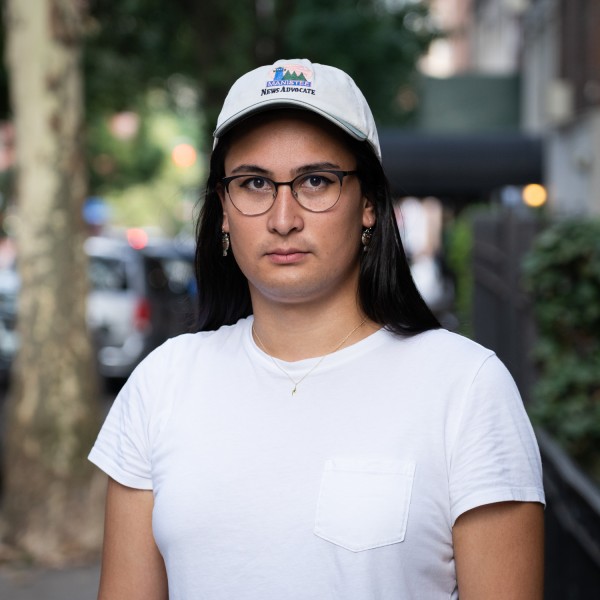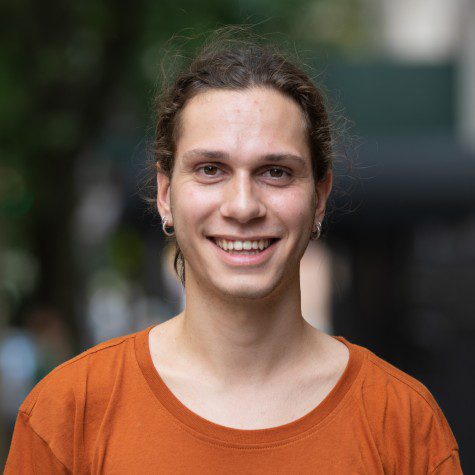Hi everyone!
As spring break wraps up, I want to review some of the journalism we’ve published in the first half of the semester as we prepare to head into the second.
Usually, this newsletter focuses on the short term — “what happened this week that’s worth knowing about.” This week, we’ll take a slightly longer view. These are the semester’s top stories so far.
|
|

|
|
A map of recent assaults around NYU's campus. Map: Arnav Binaykia/WSN. Created with Datawrapper.
|
|
In recent weeks, concerns surrounding public safety on NYU’s campus have grown. (Note that the dates refer to when WSN reporting was published, not when the events in question occurred.)
Feb. 22: After cuts to Campus Safety officer overtime resulted in some NYU buildings going unguarded on nights and weekends, building administrators, officers and students expressed concerns about safety and building access, Carmo Moniz reported.
Feb. 23: A graffiti swastika was discovered outside an NYU building on Feb. 16, prompting responses (including a letter to the editor) from NYU administrators and community leaders.
And one of the biggest stories of the semester, driven by Lauren Ashe’s reporting, has been NYU’s response to a string of assaults on campus.
|
|

|
|
A Feb. 28 vigil at the Kimmel Center for University Life. (Photo by Joshua Becker)
|
|
The Russian invasion and war in Ukraine has been at the center of the world’s attention for several weeks now. As I wrote in a recent Editor’s Note, we’re focusing on covering how the crisis is affecting our local community.
So far, that’s involved citywide protests, an NYU vigil, NYU president Andrew Hamilton’s response and an NYU lecture on the war.
In our Opinion section, Jules Roscoe weighed in on the media coverage on coping with the war, and in a letter to the editor, a Russian-Ukrainian NYU senior called for Hamilton to aid students affected by the war.
And if you’re looking for recaps of events overseas, the Soapbox summarizes pressing topics in world affairs on Fridays. Recent installments have discussed the early events of the war, plights faced by migrants, and the repercussions of economic sanctions in Central Asia, the Middle East, North Africa and the European Union.
|
|

|
|
A guard tower on the Israeli West Bank barrier overlooks the city of Bethlehem. (Staff Photo by Trace Miller)
|
|
|
Calls to close NYU Tel Aviv
|
|
Controversy surrounding Israel and NYU’s study away site in Tel Aviv is a longstanding component of campus discourse.
In a March 1 opinion piece, Trace Miller renewed the call to shut down NYU Tel Aviv, citing a recent Amnesty International report that found Israel guilty of apartheid.
On March 7, the Palestinian-led BDS National Committee quoted Miller’s piece on Instagram. That same day, NYU spokesperson John Beckman reaffirmed the university’s commitment to its presence in Israel in a letter to the editor.
The Middle East Eye, a London-based publication, covered the movement to close the Tel Aviv site in a March 9 article, and on March 11, two NYU student government representatives proposed a resolution contending that continuing operations there violates certain NYU policies.
|
|
Last week I wrote that you might find it surprising that WSN’s editorial staff get paid at all, or that we get paid so little.
I can’t get into too many specifics about how the finances work around here, but I do want to talk broadly about how we get paid, at least in recent semesters.
First of all, I want to emphasize that the following only applies to editorial staff — compensation for business staff works differently, and paying writers just isn’t possible at the moment.
Second of all, it’s not a lot.
NYU allots us a low-five-figures amount each semester for stipends. That might sound like a lot of money, and in some ways it is. It sends a message that NYU values the newspaper enough to provide it with money for stipends for its staff, even if those stipends are largely symbolic.
But while that money is genuinely appreciated, it’s not nearly enough to fairly compensate our staff for a semester of part-time work. Sure, it’s not a real job — but it’s real work.
This semester’s stipend distribution isn’t quite finalized, but nobody will be getting more than $900 or less than $150. Without providing all the numbers, the stipends average out to $250 each.
Making money in journalism (especially college journalism) isn’t easy these days. The COVID-19 pandemic also cut into advertising budgets, meaning that potential clients had less to spend on ads. But we still work our asses off to find and report the stories that matter to the NYU community because we believe that it’s important work in itself.
The stipends basically say, “Hey, thanks for doing all of that. We don’t have the money to pay you a fair rate, but here’s something for your trouble.”
It can feel like a lot to get at once after not getting anything all semester, but at 50 working hours a week, my stipend comes out to $1.28 an hour. Rest assured, we’re not exactly in it for the money.
Regardless of how much fun it is, though, working for WSN sometimes resembles an unpaid internship. Unpaid internships are bad — they restrict valuable career experience to the people who already have the most privilege.
We don’t want WSN to perpetuate inequity in journalism, so we’re working on implementing some changes that make it fairer to work here. The Features desk, which I wrote about in last week’s Editor’s Note, is one attempt to pay writers for their work. There are also some very behind-the-scenes plans to increase the compensation for certain staff, and we’re working on finding ways to pay stipends in installments so that staff can rely on a steady amount throughout the semester rather than a lump sum at the end.
That’s about all I can say for now. To anyone considering applying for a staff position at WSN next semester: Yes, there’s a stipend. And yes, you deserve more.
You can reach me at the email down below with any questions. Your regularly scheduled WSN programming will resume on Monday — I hope you’ve had a relaxing spring break. Welcome back.
—the editor
|
|
|
|

